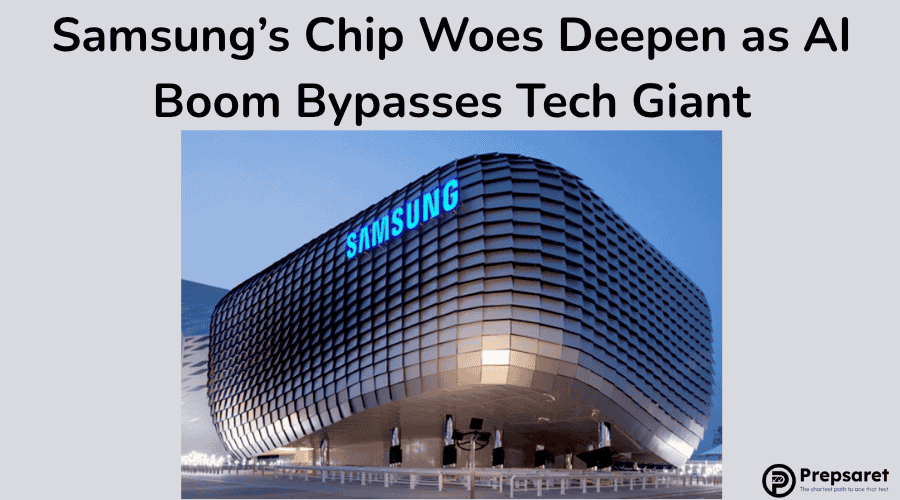Samsung Electronics has warned of a steep 56% drop in its second-quarter operating profit, driven largely by sluggish sales of AI-related semiconductors.
This unexpected slump has intensified investor concerns about the company’s ability to regain footing in the fiercely competitive semiconductor industry.
The South Korean tech powerhouse pointed to tightening U.S. export controls on advanced AI chips to China as a major hurdle.
However, analysts argue that supply delays of high-bandwidth memory (HBM) chips to key client Nvidia also played a significant role in the disappointing results.
Although Samsung had earlier indicated that its cutting-edge HBM 3E 12-layer chips might be ready by June, it has since refrained from confirming any shipments to Nvidia.
Instead, the company stated its upgraded HBM products are “undergoing customer evaluation and proceeding with shipments.”
Related post: Alpha and Omega Semiconductor Fined $4.25 Million for Unauthorized Shipments to Huawei
Rivals Gain Ground as Samsung Falters
While Samsung struggles, competitors such as SK Hynix and Micron are reaping the benefits of surging AI demand in the U.S. Unlike its peers, Samsung has a greater dependence on the Chinese market, where it faces not only regulatory barriers but also growing competition from domestic players.
“For Samsung Electronics, the key issue remains regaining competitiveness … Everything ultimately comes back to HBM,” noted Ryu Young-ho, a senior analyst at NH Investment & Securities.
He also warned that “It will also be difficult to raise prices immediately due to competition, making it challenging to sustain high margins.”
Samsung projects an operating profit of 4.6 trillion won for the April-June quarter, significantly short of the 6.2 trillion won forecast by LSEG SmartEstimate.
This figure would mark the company’s weakest performance in six quarters, down from 10.4 trillion won in the same period last year and 6.7 trillion won in the previous quarter. Revenue is expected to dip slightly to 74 trillion won.
The company attributed part of the decline in chip earnings to inventory-related value losses, with analysts suggesting that unsold HBM chips originally intended for Nvidia may have played a role.
They predict the chip division’s operating profit could fall to around 500 billion won—a more than 90% plunge—although the mobile business may have fared better.
Samsung’s shares edged down by 0.2%, even as the broader KOSPI index rose 1.2%. The company confirmed it will proceed with a 3.9 trillion won share buyback, part of a larger 10 trillion won plan announced in November.
Foundry Setbacks and Recovery Outlook
The tech giant also acknowledged that its foundry division remains under pressure. Challenges include reduced output levels and financial hits from export restrictions tied to AI chips destined for China.
Despite the ongoing difficulties, Samsung anticipates a rebound in the latter half of the year, projecting smaller losses as utilization rates improve alongside rising demand. The company is set to unveil detailed earnings and performance figures for each business segment on July 31.
Read next: Google’s AI Overviews Face EU Antitrust Heat
Looking to advance your career?
Check out our collection of certification prep guides and study resources designed to help you strengthen your skills, manage resources effectively, and stay ahead in your field:
- CompTIA Certification Resources – Develop your expertise in IT support, networking, and cybersecurity.
- HR Certification Materials – Gain knowledge in HR basics, regulatory compliance, and strategic workforce planning.
- PMP Exam Prep – Sharpen your project management skills, including budgeting and resource management.

